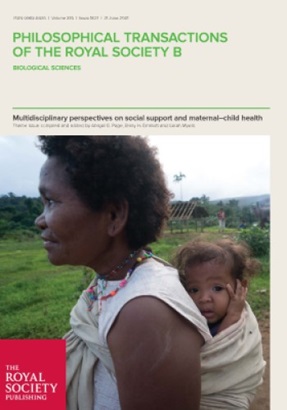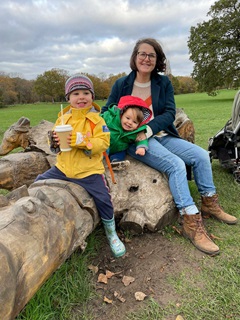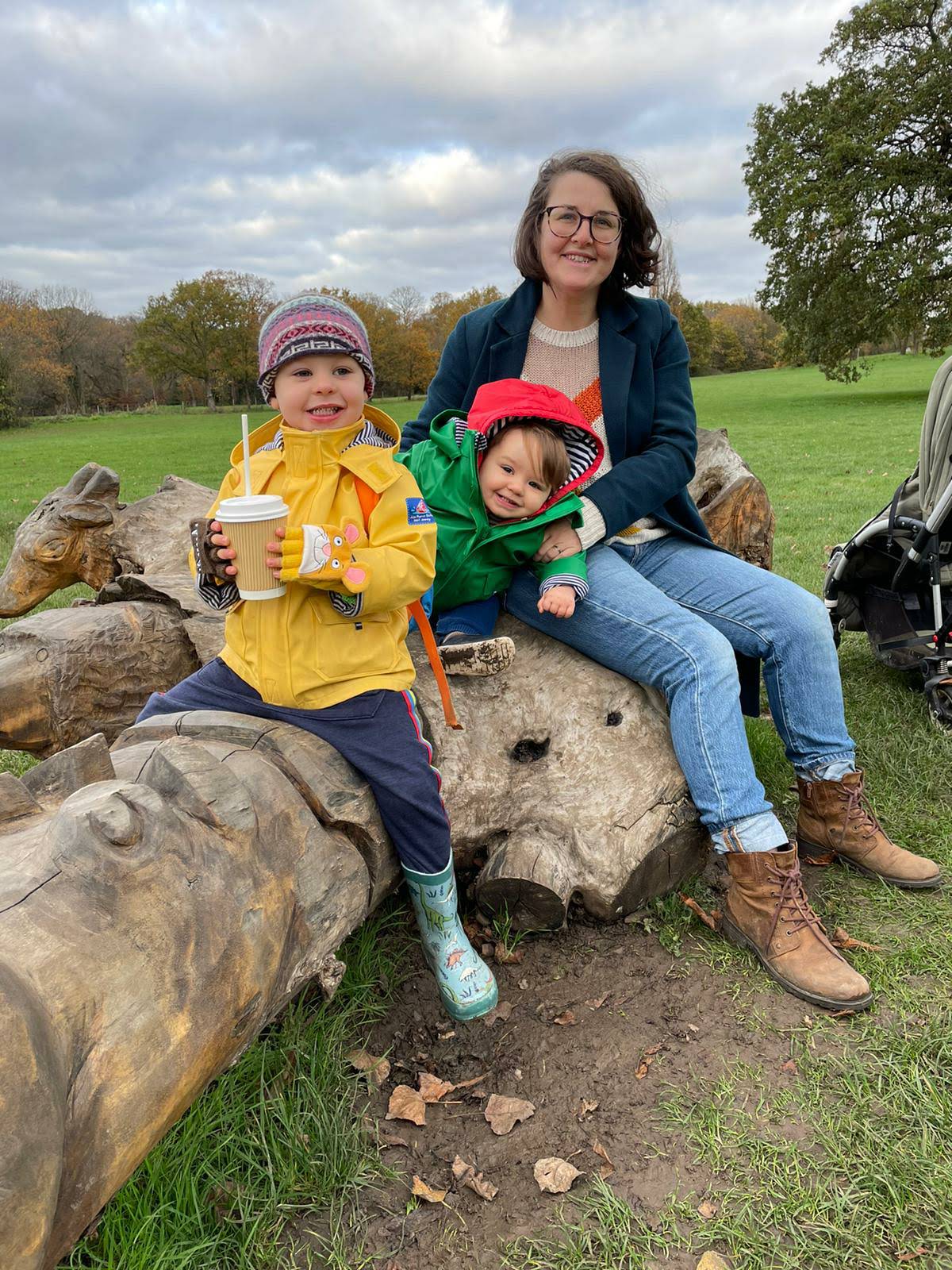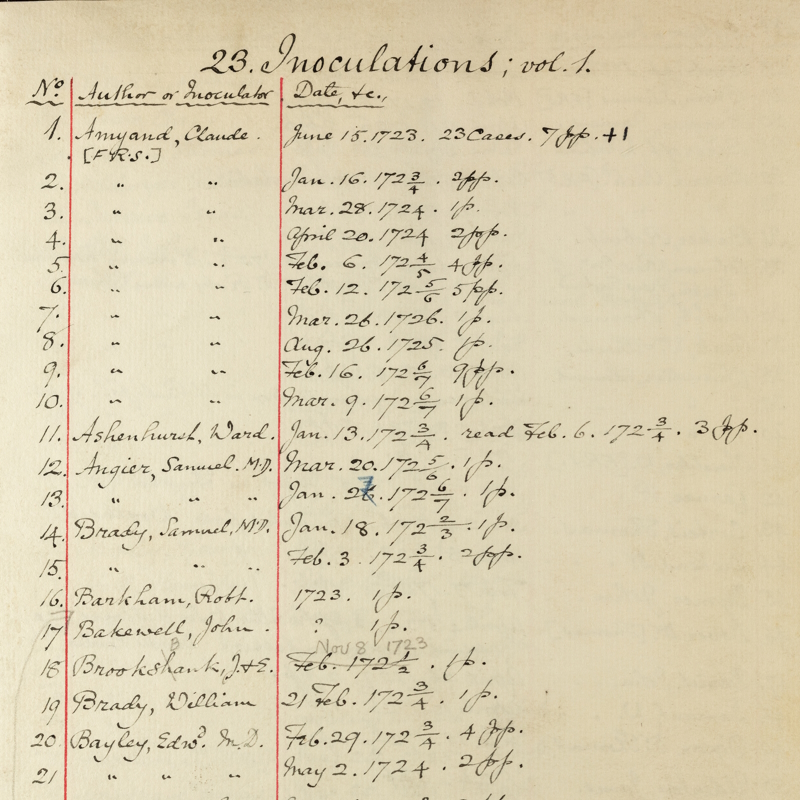Co-guest editor, Abigail Page, discusses the latest issue of Philosophical Transactions B, ‘Multidisciplinary perspectives on social support and maternal-child health'.

The latest issue of Philosophical Transactions B is on ‘Multidisciplinary perspectives on social support and maternal-child health', edited by Abigail Page, Emily Emmott and Sarah Myers. In this blog, Abigail tells us how this issue came about and about some of the important research included in the issue, and about her experiences editing this issue during the Covid-19 pandemic.
After more than 14 months living with COVID-19 restrictions in the UK, the importance of social support has never been clearer, particularly when it comes to raising children. As the physical links between households were cut, maternity and community health services restricted, and early years settings and schools closed, the transmission of SARS-CoV-2 rapidly slowed, but so did the flow of essential social support to parents. Evidence points towards mothers disproportionally shouldering the burden of additional childcare and it is already well documented that mothers’ mental health and wellbeing have suffered in 2020-2021.
Sarah Myers (UCL and MPI), Emily Emmott (UCL) and I started work on this theme issue on multidisciplinary perspectives on social support and maternal-child health back in 2019, not anticipating that our plans would be hit by a global pandemic. Our aim was to highlight the depth of understanding possible from bringing together diverse research from across disciplines, cultural settings and geographies. The idea for the special issue arose during a workshop in February 2019 funded by the European Human Behaviour and Evolution Association (EHBEA). We were 25 researchers from varied backgrounds in psychology, epidemiology, midwifery, health services, anthropology demography and nursing. Despite this diversity, we were all in agreement that a holistic and multidisciplinary approach to social support was necessary. We were also, however, acutely aware of how difficult interdisciplinary working is; it’s a challenge to reach the right journals and audiences, and even harder to establish dialogue as research is often discipline focused and jargon heavy. In response, we developed a practical guide to interdisciplinary research, highlighting the need to develop topic-based approaches and special issues that draw on the expertise of multiple perspectives. We are delighted that, despite some delays and setbacks, the special issue which is a collaboration of researchers from many distinct disciplines, written for a diverse audience, is now published. Beyond a doubt, bringing together the special issue in 2020-2021 has been a challenge for all so we, the guest editors, would like to thank all our authors and reviewers for managing to contribute during such difficult times.
and I started work on this theme issue on multidisciplinary perspectives on social support and maternal-child health back in 2019, not anticipating that our plans would be hit by a global pandemic. Our aim was to highlight the depth of understanding possible from bringing together diverse research from across disciplines, cultural settings and geographies. The idea for the special issue arose during a workshop in February 2019 funded by the European Human Behaviour and Evolution Association (EHBEA). We were 25 researchers from varied backgrounds in psychology, epidemiology, midwifery, health services, anthropology demography and nursing. Despite this diversity, we were all in agreement that a holistic and multidisciplinary approach to social support was necessary. We were also, however, acutely aware of how difficult interdisciplinary working is; it’s a challenge to reach the right journals and audiences, and even harder to establish dialogue as research is often discipline focused and jargon heavy. In response, we developed a practical guide to interdisciplinary research, highlighting the need to develop topic-based approaches and special issues that draw on the expertise of multiple perspectives. We are delighted that, despite some delays and setbacks, the special issue which is a collaboration of researchers from many distinct disciplines, written for a diverse audience, is now published. Beyond a doubt, bringing together the special issue in 2020-2021 has been a challenge for all so we, the guest editors, would like to thank all our authors and reviewers for managing to contribute during such difficult times.
In the issue, we showcase work from psychology, demography, nursing, evolutionary anthropology, public health, health services, midwifery and human biology to reflect on the diversity of support for mothers and their children, and its consequences. Robert Hughes and colleagues highlight the lack of work on informal childcare in rapidly urbanising contexts, as research on child development focuses, problematically, on the mother. The focus on the mother as the main caregiver has a long history in the West, as mothers’ responsibility is increasingly overemphasised, as discussed by Kirsty Budds. This may be why we frequently overlook the importance of children as caregivers, something I highlight in my own research. Other key supporters include partners, grandmothers and volunteers – something we demonstrate with studies from Australia, the Congo Basin, Thai-Myanmar border, Mexico, and Japan. However, not all support is equal and is complicated by individuals’ goals, needs, and obligations.
Collectively, these varied but interwoven perspectives reinforce that optimal maternal and child wellbeing is obtained with support which originates beyond the mother and the beyond the nuclear family. This special issue pre-dated COVID-19, but in the era of lockdowns, loneliness and isolation, social support for mothers and their children has clearly never been more relevant.
Many of the authors in this special issue are women, perhaps due to a higher proportion of women researching maternal-child health, or a product of our networks as three female guest editors. Regardless of the reason, given that even pre-COVID it was women who were more likely have to take on care work and domestic tasks (in fact, worldwide women carry out three-quarters of unpaid care work), the loss of formal care facilities and informal social networks during COVID-19 posed real challenges for the authors of this issue, including me. As a working mum, by mid-March 2020 I found myself, day-in and day-out, almost completely responsible for two pre-schoolers. No activities, no friends, no play-groups/grounds/dates, only a daily walk to find rainbows and teddy bears. My husband, for economic reasons (as is often the rationale for unequal allocation of household roles) could shut the door, put on headphones, and retain his freedom. I, on the other hand, lost my freedom and experienced complete isolation (while ironically never being able to have a few moments of peace, reminding me of the classic English kids book Five Minutes’ Peace by Jill Murphy). As a white, middle-class mum in North London, I was aware that my situation was in many ways privileged. Nonetheless, for me, the importance of social support, something I have studied for years, was really thrown into sharp relief.
by mid-March 2020 I found myself, day-in and day-out, almost completely responsible for two pre-schoolers. No activities, no friends, no play-groups/grounds/dates, only a daily walk to find rainbows and teddy bears. My husband, for economic reasons (as is often the rationale for unequal allocation of household roles) could shut the door, put on headphones, and retain his freedom. I, on the other hand, lost my freedom and experienced complete isolation (while ironically never being able to have a few moments of peace, reminding me of the classic English kids book Five Minutes’ Peace by Jill Murphy). As a white, middle-class mum in North London, I was aware that my situation was in many ways privileged. Nonetheless, for me, the importance of social support, something I have studied for years, was really thrown into sharp relief.
Of course, it didn’t have to be this way. It wasn’t until late September 2020 that the UK government allowed childcare support during lockdown. MPs working on the Women and Equalities committee have highlighted that COVID support policies repeatedly failed to consider the caring inequalities faced by women. Arguably, such ‘oversights’ are a product of Western notions of motherhood and the importance of the ‘traditional’ nuclear family as the childrearing unit. The nuclear family (i.e. a couple and their children) however, is neither traditional nor normal, but rather a product of middle-class norms during the post-WWII period, a point argued by Rebecca Sear in the first opinion piece in the special issue. Instead, we evolved to raise our children cooperatively; there is no way women could manage to support many highly demanding, needy, competing (I could go on…) children alone. Worldwide, childrearing is still widely shared, with mothers and children supported by a diverse range of individuals. This reality, however, has not filtered into the narrow conceptualisation of the family which predominates social and public health policy directed at women with children. We hope that this special issue, by focusing on how to foster communication and collaboration between the diverse fields working on social support and maternal-child health, will help reframe the discussion.
Images:
1. Woman and children in Ecuador. Image by David Mark from Pixabay.
2. Cover of the theme issue
3. Abigail with her children Finley and Rémy (image provided by the author).





